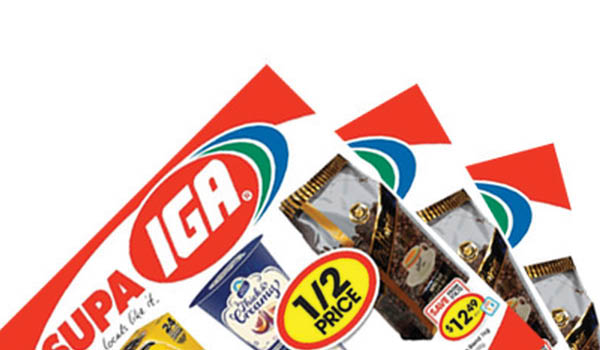Metcash has recorded group sales revenue of $13.5 billion, up 1.3 per cent, for the financial year ended April 30, 2016, as the grocery wholesaler completes the second year of its transformation strategy.
Group EBIT for the year declined 7.4 per cent to $275.4 million, compared to $297.3 million in FY15. The company said there was continued improvement in both the liquor and hardware divisions, which was more than offset by the decline in food and grocery, including convenience.
Reported profit after tax (including discontinued operations) was $216.5 million, compared to $384.2 million in FY15. Underlying profit after tax increased to $178.3 million from $173.6 million last year, reflecting the lower finance costs in FY16, partly due to a $9.6 million gain resulting from the restructure of finance facilities.
Group CEO, Ian Morrice, said the group has made significant process in its transformation plan.
“Key supermarkets initiatives are delivering returns and the liquor and hardware businesses continue to build momentum. The group is focused on supporting independent retailers to ensure they are well positioned to deliver the ‘Best Store in Town’ for their customers.
“The strong focus on capital and cash management has delivered a significant reduction in debt which positions the group well to deliver its transformation initiatives as well as invest in growth opportunities.
“This financial strength also underpins the group’s intention to recommence half yearly dividend payments with effect from the FY17 final dividend, subject to capital requirements,” Mr Morrice said.
Food and grocery
Total food and grocery sales increased by 0.5 per cent to $9.3 billion, up from $9.2 billion in FY15. Supermarkets sales grew 0.5 per cent, however, adjusting for the estimated impact of disruption from storm damage to the NSW distribution centre in April last year underlying sales would have been up 0.9 per cent.
IGA stores like for like retail sales increased 1.4 per cent representing the fourth reporting period of sales growth. The group added around 175 mid-tier private label SKUs, while Black and Gold sales rose 9.7 per cent.
Food and grocery EBIT declined 17 per cent to $179.9 million. Supermarkets EBIT also declined by $21 million primarily due to the foreshadowed incremental price investment during the year. Supermarkets earnings in the second half were in line with the first half, reflecting the cost of price investment now being cycled in the earnings base.
Convenience
Convenience sales for the financial year rose 0.4 per cent to $1.6 billion. The growth in C-Store Distribution (CSD) revenues was however, largely offset by a decline in Campbells reseller revenues.
Convenience EBIT declined by $16 million reflecting the challenging business environment impacted by an accelerated decline in the Campbells reseller business (particularly in tobacco), and margin pressure from major CSD contracts that was not offset by growth in food services.
Liquor
Total sales increased by 3.7 per cent to $3.2 billion, as a result of the strong performance of the IBA network and the continued conversion of customers to our banner group. Sales through the IBA bannered network increased 13 per cent on the prior year.
EBIT increased by 7.8 per cent to $62.1 million (FY15 $57.6 million) reflecting conversion of stores to the IBA bannered network and a strong focus on cost control.
Transformation and Working Smarter programs
Metcash has completed the second year of its transformation plan and has implemented a range of initiatives in the businesses which the group says is having a positive impact across all divisions.
In food and grocery, the company’s ‘Price Match’ initiative has been rolled out across 960 stores. It has also completed the targeted 150 Diamond Stores and implemented fresh initiatives such as ‘Your Kitchen’ and ‘Cheese Shops’ into a further 325 stores.
The Working Smarter program, which commenced in FY16 and aims to make it simpler for Metcash customers, suppliers and employees, is expected to deliver $35 million gross savings in FY17.
“These savings will help offset the underlying inflationary pressure in our cost base and enable our business to invest in growth opportunities in an increasingly competitive trading environment,” the company said.
Outlook
Mr Morrice said highly competitive conditions remain in all markets, with additional impact from increased food and grocery competition in South Australia and Western Australia.
“The food and grocery business continues to face headwinds from competition, deflation and a rising cost base,” Mr Morrice said.
“We will continue to progress the transformation plan (including Working Smarter) in FY17.
“The group’s solid financial position underpins our intention to recommence half yearly dividend payments with effect from the FY17 final dividend, subject to capital requirements.”
Sign up to C&I’s weekly newsletter here to receive the latest industry news every Thursday. Follow C&I on Facebook, Twitter and Linkedin.

